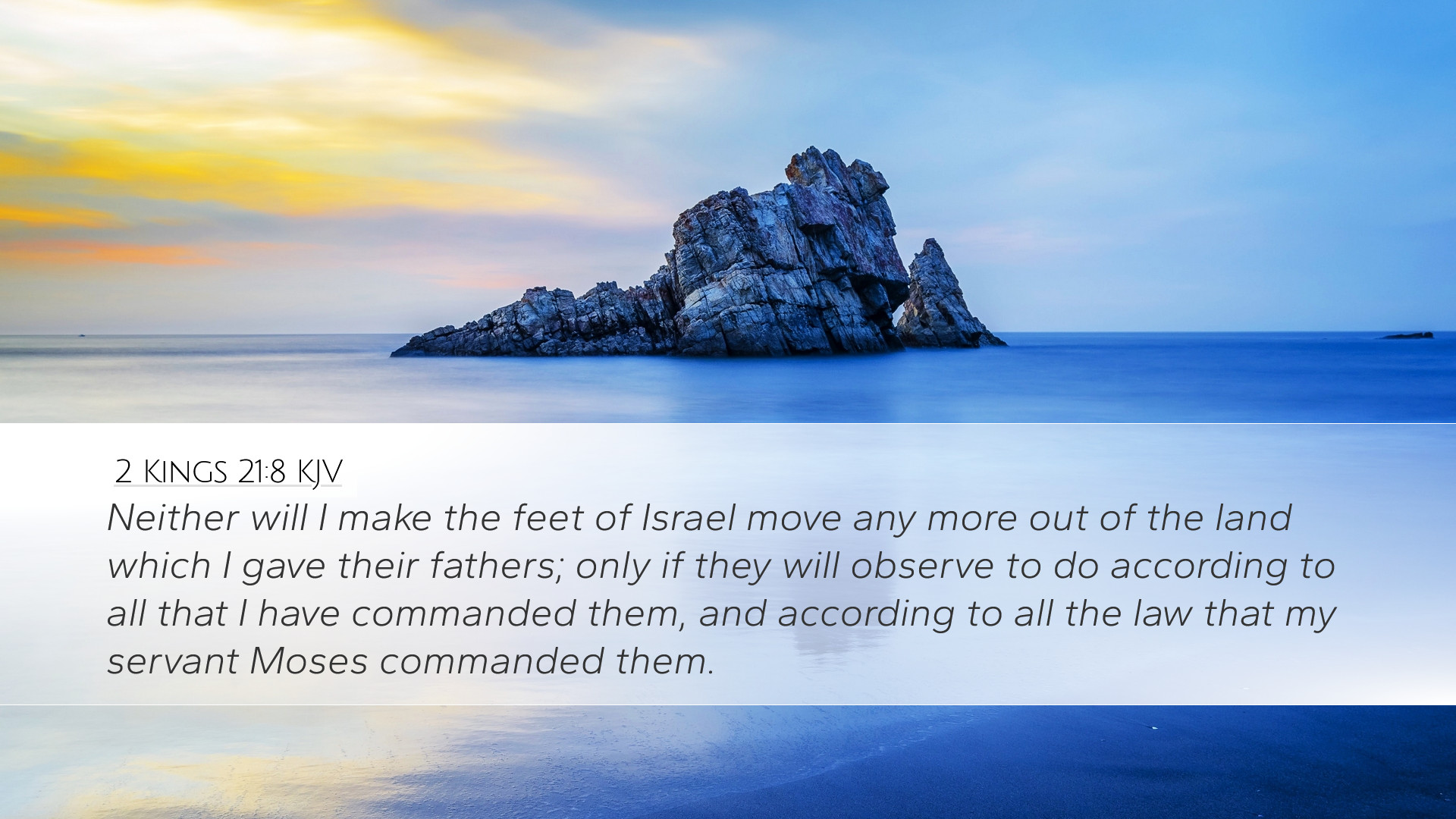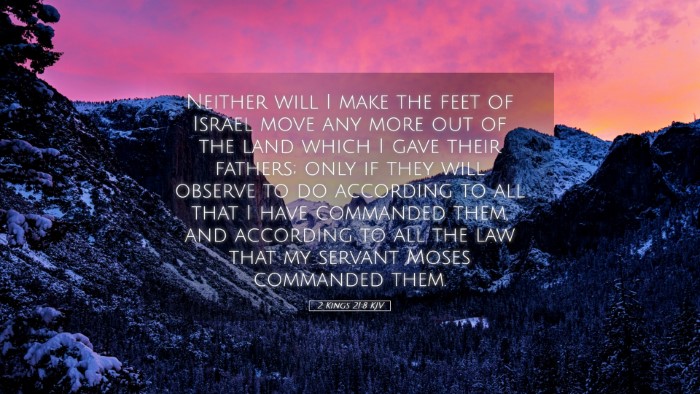Commentary on 2 Kings 21:8
2 Kings 21:8 states, "Neither will I make the feet of Israel move any more out of the land which I gave their fathers; only if they will observe to do according to all that I have commanded them, and according to all the law that my servant Moses commanded them."
Introduction
This verse highlights God's steadfast covenant with Israel, juxtaposed with the people's obligation to obey His commandments. It represents a pivotal moment in the history of Israel as it reflects the consequences of disobedience and the promise of restoration through faithfulness.
Theological Insights
Several public domain commentaries provide profound insights into this verse:
-
Matthew Henry's Commentary:
Henry emphasizes the grace of God in His promises, stating that as long as the people adhere to His laws, God remains faithful to His covenant. The phrase "neither will I make the feet of Israel move" signifies God's ongoing commitment and the importance of maintaining fidelity to Him.
-
Albert Barnes' Notes:
Barnes elaborates on the conditional nature of God's promise. He highlights that God's covenant is linked to the obedience of the people. If they stray from His commandments, they risk losing the land, which serves as a strong warning of the consequences of idolatry and rebellion against God.
-
Adam Clarke's Commentary:
Clarke notes the significance of the law given to Moses, underlining that the adherence to God's statutes is not merely a ceremonial obligation but a heartfelt commitment to living righteously. He stresses that true observance entails understanding and internalizing God’s commandments rather than mere external compliance.
Historical Context
This verse must be understood against the backdrop of Israel's tumultuous history during the reign of King Manasseh, who led the nation into idolatry. Henry notes that King Manasseh's actions had grave consequences not just for him, but for the entire nation, casting a long shadow over Israel's legacy.
Manasseh's Idolatry
Manasseh’s reign was marked by significant departures from the worship of Yahweh. His infiltration of pagan practices led to a societal decline, creating a culture that ignored the covenant obligations set forth by God.
The Call to Return
Despite the spiritual degradation, God’s promise in 2 Kings 21:8 serves as a beacon of hope. It reflects God's desire to restore His people, should they choose to return to Him. Clarke points out that this illustrates God's merciful nature, always ready to forgive and renew those who repent.
Reflections for Today’s Believers
For contemporary readers, this verse calls believers to a deep reflection regarding the covenant relationship with God.
-
Faithfulness in Obedience:
The importance of staying true to God's commandments remains paramount. Just as Israel was called to obedience, so too are believers today called to live out their faith through actions that reflect God's teachings.
-
The Assurance of God’s Presence:
Believers can draw comfort from God's assurance that He will not abandon them, so long as they remain faithful. The narrative encourages a lifestyle that seeks righteousness, fostering an ongoing relationship with the divine.
Conclusion
In conclusion, 2 Kings 21:8 serves as a significant reminder of both the seriousness of God's covenant and the call for faithful obedience. The insights provided by historical commentary enrich our understanding and application of scripture, affirming a timeless truth: while the path to faithfulness may often be challenging, God's promise of presence and restoration whenever His people return to Him remains steadfast.


